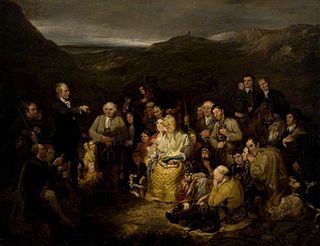
The Council of Constance is the 15th-century ecumenical council recognized by the Catholic Church, held from 1414 to 1418 in the Bishopric of Constance. The council ended the Western Schism by deposing or accepting the resignation of the remaining papal claimants and by electing Pope Martin V.

Pope Gregory XII, born Angelo Corraro, Corario, or Correr, was Pope from 30 November 1406 to 4 July 1415 when he was forced to resign to end the Western Schism. He succeeded Pope Innocent VII and in turn was succeeded by Pope Martin V.
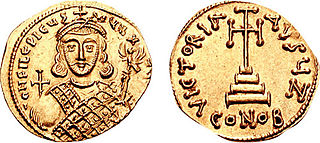
Philippikos or Philippicus was Emperor of the Byzantine Empire from 711 to 713.

The Second Council of the Lateran is believed to have been the tenth ecumenical council held by the Roman Catholic Church. It was convened by Pope Innocent II in April 1139 and attended by close to a thousand clerics. Its immediate task was to neutralise the after-effects of the schism which had arisen after the death of Pope Honorius II in 1130 and the papal election that year that established Pietro Pierleoni as the antipope Anacletus II.

Robert Hallam was an English churchman, Bishop of Salisbury and English representative at the Council of Constance. He was Chancellor of the University of Oxford from 1403 to 1405.

The Western Schism, also called Papal Schism, Great Occidental Schism and Schism of 1378, was a split within the Catholic Church lasting from 1378 to 1417 in which two, since 1410 even three, men simultaneously claimed to be the true pope, having excommunicated one another. Driven by politics rather than any theological disagreement, the schism was ended by the Council of Constance (1414–1418). For a time these rival claims to the papal throne damaged the reputation of the office.
Conciliarism was a reform movement in the 14th-, 15th- and 16th-century Catholic Church which held that supreme authority in the Church resided with an Ecumenical council, apart from, or even against, the pope. The movement emerged in response to the Western Schism between rival popes in Rome and Avignon. The schism inspired the summoning of the Council of Pisa (1409), which failed to end the schism, and the Council of Constance (1414–1418), which succeeded and proclaimed its own superiority over the Pope. Conciliarism reached its apex with the Council of Basel (1431–1449), which ultimately fell apart. The eventual victor in the conflict was the institution of the Papacy, confirmed by the condemnation of conciliarism at the Fifth Lateran Council, 1512–17. The final gesture however, the doctrine of Papal Infallibility, was not promulgated until the First Vatican Council of 1870.

Pierre d'Ailly was a French theologian, astrologer, and cardinal of the Roman Catholic Church.

The Fifth Council of the Lateran (1512–1517) is the Eighteenth Ecumenical Council to be recognized by the Roman Catholic Church and the last one before the Protestant Reformation.
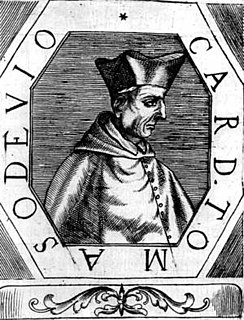
Thomas Cajetan, also known as Gaetanus, commonly Tommaso de Vio or Thomas de Vio, was an Italian philosopher, theologian, cardinal and the Master of the Order of Preachers 1508-18. He was a leading theologian of his day who is now best known as the spokesman for Catholic opposition to the teachings of Martin Luther and the Protestant Reformation while he was the Pope's Legate in Augsburg, and perhaps also among Catholics for his extensive commentary on the Summa Theologica of Thomas Aquinas.

Pedro Martínez de Luna y Pérez de Gotor, known as el Papa Luna in Spanish and Pope Luna in English, was an Aragonese nobleman, who as Benedict XIII, is considered an antipope by the Catholic Church.
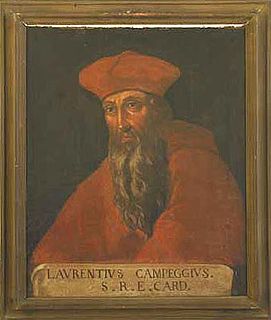
Lorenzo Campeggio (1474–1539) was an Italian cardinal and politician. He was the last cardinal protector of England.

Christopher Bainbridge was an English Cardinal of the Roman Catholic Church. He served as Archbishop of York from 1508 until his death.
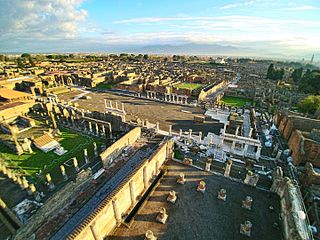
A forum was a public square in a Roman municipium, or any civitas, reserved primarily for the vending of goods; i.e., a marketplace, along with the buildings used for shops and the stoas used for open stalls. Many fora were constructed at remote locations along a road by the magistrate responsible for the road, in which case the forum was the only settlement at the site and had its own name, such as Forum Popili or Forum Livi.

The Archdiocese of Pisa is a metropolitan see of the Catholic Church in Italy. It was founded in the 4th century and elevated to the dignity of an archdiocese on 21 April 1092 by Pope Urban II. Its mother church is the cathedral in the Piazza del Duomo. Since 2008 the Archbishop of Pisa has been Giovanni Paolo Benotto.

Bernardino López de Carvajal y Sande was a Spanish Cardinal.
Jacques Almain was a prominent professor of theology at the University of Paris who died at an early age. Born in the diocese of Sens, he studied Arts at the Collège de Montaigu of the University of Paris. He served as Rector of the University from December 1507 to March 1508.

Rinaldo Brancaccio was an Italian cardinal from the 14th and 15th century, during the Western Schism. There were other members of his family created cardinals : Landolfo Brancaccio (1294); Niccolò Brancaccio, pseudocardinal of Antipope Clement VII (1378); Ludovico Bonito (1408); Tommaso Brancaccio (1411); Francesco Maria Brancaccio (1633) and Stefano Brancaccio (1681). He was called the Cardinal Brancaccio.
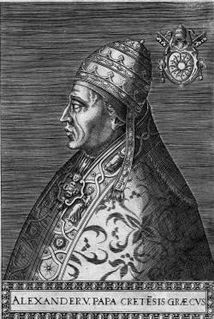
Peter of Candia or Peter Phillarges as Alexander V was a nominal pope elected during the Western Schism (1378–1417). He reigned briefly from June 26, 1409, to his death in 1410 and is officially regarded by the Roman Catholic Church as an antipope.

The Council of Pisa was a controversial ecumenical council of the Catholic Church held in 1409. It attempted to end the Western Schism by deposing Benedict XIII (Avignon) and Gregory XII (Rome) for schism and manifest heresy. The College of Cardinals, composed of members of both the Avignon Obedience and the Roman Obedience, who were recognized by each other and by the Council, then elected a third papal claimant, Alexander V, who lived only a few months. He was succeeded by John XXIII.
